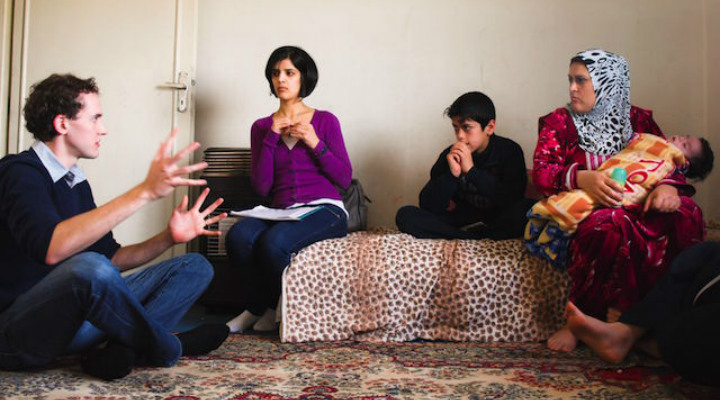Throughout the post, “we” refers to GiveWell and Good Ventures, who work as partners on the Open Philanthropy Project.
Recently, we've been hearing from a lot of people who are wondering about where to donate in response to things like:
- Recent executive orders that could greatly harm immigrants, such as by cutting down on refugee admissions and even (though this provision appears to have been reversed for now) refusing to honor the right of U.S. permanent residents (green card holders) to freely enter the U.S. We think these orders are likely to have major humanitarian costs, and additionally pose risks to the United States' reputation for honoring commitments.
- A perceived increase in the risk of democratic backsliding in the U.S.
The volume and nature of requests seems comparable in many ways to what GiveWell generally sees in the wake of a natural disaster. (The relationship between GiveWell, Good Ventures and the Open Philanthropy Project is described here.) GiveWell has generally tried to accommodate the latter by posting disaster relief recommendations that are less closely vetted than its traditional charity recommendations but represent rough suggestions for how to help. In that spirit, we've decided to put out some very tentative suggestions for donating to help immigrants and refugees at heightened risk and to maintain constitutional protections in the U.S.
We haven't had time to explore the issues deeply; the situation is changing rapidly; and there seems to be heightened interest from many donors, making it harder to say where there are important funding gaps. For all of the below organizations, we have little sense of their current plans or the impact (or cost-effectiveness) of marginal dollars.
Focusing on refugees and immigrants. One of the Open Philanthropy Project’s grantees is the International Refugee Assistance Project (IRAP). We think it is a strong organization that is smaller and less high-profile than some of the other organizations that are responding to the recent executive actions. IRAP is one of the plaintiffs, along with the American Civil Liberties Union (ACLU), the National Immigration Law Center, and a Yale Law clinic, in a suit that got a temporary injunction against the recent Executive Order targeting green card holders. We believe that IRAP has a meaningful track record of policy impact on these issues, and appreciate its focus on refugees, who we think face a structural disadvantage in the U.S. policy process from not already being present.
Constitutional and civil rights litigation: the ACLU is an obvious choice and, in our view, a reasonable one. Since the ACLU is the best-known advocate for constitutional and civil rights, we think it is likely to be held "accountable" (to a greater degree than other nonprofits) in the sense of being assigned much of the credit/blame for how efforts at defensive litigation go overall. The ACLU has raised a lot of money recently, but it's possible that more still would be productive.
Donors looking for a less well-funded organization might consider the Center for Constitutional Rights, which is "dedicated to advancing and protecting the rights guaranteed by the United States Constitution and the Universal Declaration of Human Rights … by combining cutting-edge litigation, advocacy and strategic communications in work on a broad range of civil and human rights issues." Chloe Cockburn, the Open Philanthropy Project’s Criminal Justice Reform Program Officer, who in her previous work was a civil rights litigator with the ACLU, recommends the Center as a strong and nimble litigation outfit, and it seems to us that its reputation is strong overall. Its annual spending is approximately 5% of the ACLU’s.
We are putting some work into finding giving opportunities we might be more confident in and consider higher-leverage, but those are our quick suggestions in the meantime.


